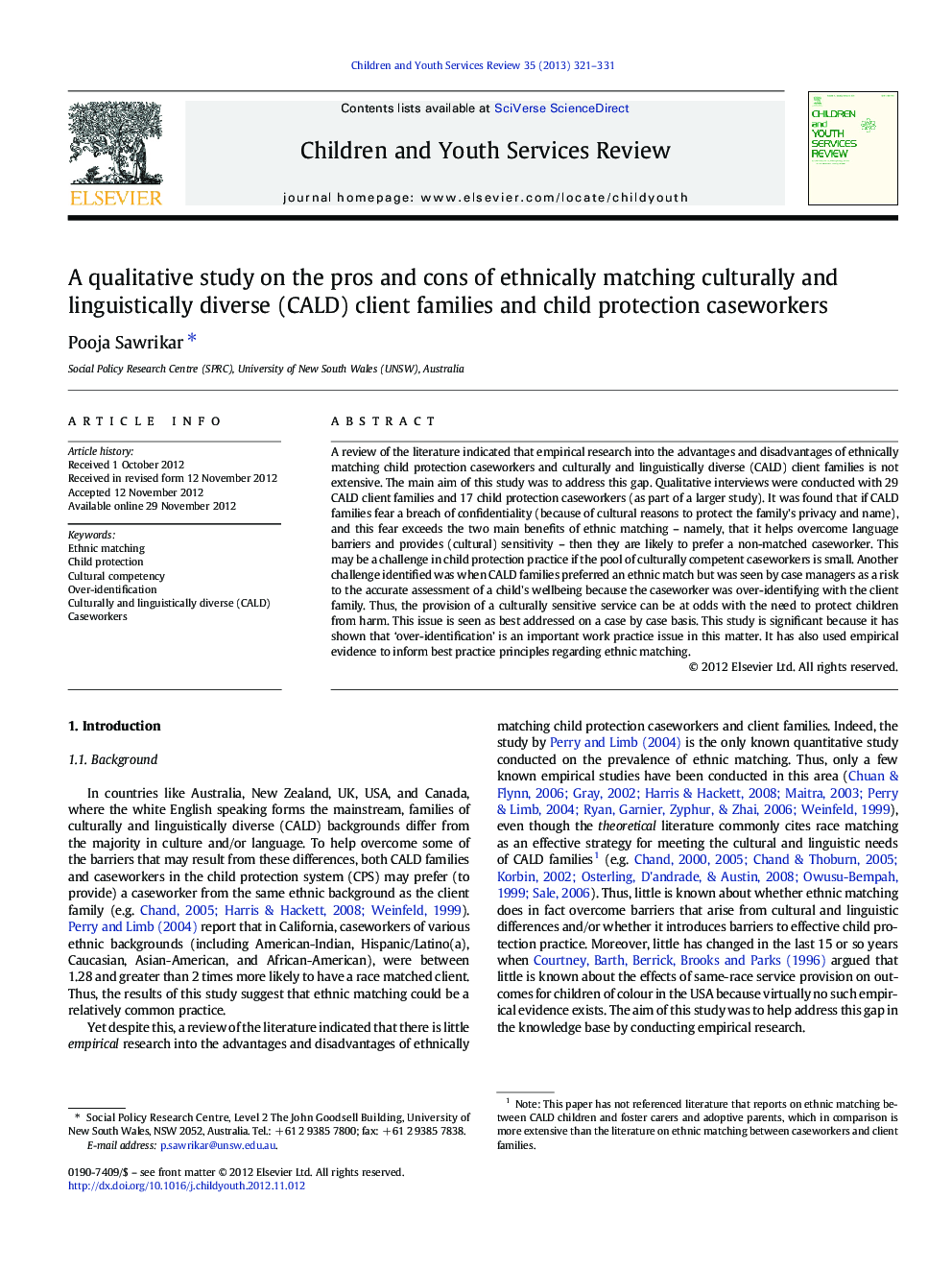| کد مقاله | کد نشریه | سال انتشار | مقاله انگلیسی | نسخه تمام متن |
|---|---|---|---|---|
| 346440 | 617818 | 2013 | 11 صفحه PDF | دانلود رایگان |

A review of the literature indicated that empirical research into the advantages and disadvantages of ethnically matching child protection caseworkers and culturally and linguistically diverse (CALD) client families is not extensive. The main aim of this study was to address this gap. Qualitative interviews were conducted with 29 CALD client families and 17 child protection caseworkers (as part of a larger study). It was found that if CALD families fear a breach of confidentiality (because of cultural reasons to protect the family's privacy and name), and this fear exceeds the two main benefits of ethnic matching – namely, that it helps overcome language barriers and provides (cultural) sensitivity – then they are likely to prefer a non-matched caseworker. This may be a challenge in child protection practice if the pool of culturally competent caseworkers is small. Another challenge identified was when CALD families preferred an ethnic match but was seen by case managers as a risk to the accurate assessment of a child's wellbeing because the caseworker was over-identifying with the client family. Thus, the provision of a culturally sensitive service can be at odds with the need to protect children from harm. This issue is seen as best addressed on a case by case basis. This study is significant because it has shown that ‘over-identification’ is an important work practice issue in this matter. It has also used empirical evidence to inform best practice principles regarding ethnic matching.
► Client families and child protection workers were interviewed on ethnic matching.
► Client families preferring a non-match need culturally competent caseworkers.
► Over-identification may be a significant risk to accurate assessments of children.
► The risk of over-identification by caseworkers is an important finding.
Journal: Children and Youth Services Review - Volume 35, Issue 2, February 2013, Pages 321–331